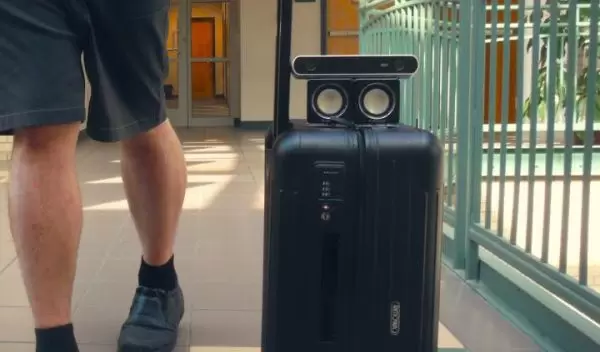
Collision-detecting suitcase, wayfinding app help blind people navigate airports
Researchers at Carnegie Mellon University say that a wayfinding smartphone app and a smart suitcase that warns blind users of impending collisions can help people with visual disabilities navigate airport terminals safely and independently.
The rolling suitcase sounds alarms when users are headed for a collision with a pedestrian, and the navigation app provides turn-by-turn audio instructions to users on how to reach a departure gate -- or a restroom or a restaurant. Both proved effective in a pair of user studies conducted at Pittsburgh International Airport.
An increasing number of airports have been installing Bluetooth beacons, which can be used for indoor navigation, but they are often deployed to enhance services for sighted travelers, not to help blind people, said Kris Kitani, assistant research professor in the Robotics Institute.
He and his colleagues deployed NavCog, a smartphone-based app that employs Bluetooth beacons, at Pittsburgh International Airport. The app, developed by CMU and IBM to help blind people navigate independently, had previously been deployed on campuses, including CMU, and in shopping malls.
The work was supported through an NSF award focused on creating a navigation assistant that uses multiple sensory technologies to guide blind people through unfamiliar environments.

